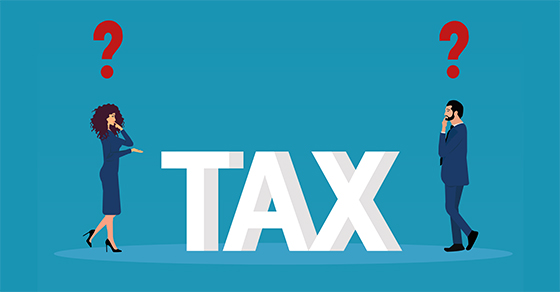Filing jointly or separately as a married couple: What’s the difference?
When you file your tax return, a tax filing status must be chosen. This status is used to determine your standard deduction, tax rates, eligibility...
 In addition to the difficult personal issues that divorce entails, several tax concerns need to be addressed to ensure that taxes are kept to a minimum and that important tax-related decisions are properly made. Here are four issues to understand if you are in the process of getting a divorce.
In addition to the difficult personal issues that divorce entails, several tax concerns need to be addressed to ensure that taxes are kept to a minimum and that important tax-related decisions are properly made. Here are four issues to understand if you are in the process of getting a divorce.
Alimony or support payments. For alimony under divorce or separation agreements that are executed after 2018, there’s no deduction for alimony and separation support payments for the spouse making them. And the alimony payments aren’t included in the gross income of the spouse receiving them. (The rules are different for divorce or separation agreements executed before 2019.)
Child support. No matter when the divorce or separation instrument is executed, child support payments aren’t deductible by the paying spouse (or taxable to the recipient).
Personal residence. In general, if a married couple sells their home in connection with a divorce or legal separation, they should be able to avoid tax on up to $500,000 of gain (as long as they’ve owned and used the residence as their principal residence for two of the previous five years). If one spouse continues to live in the home and the other moves out (but they both remain owners of the home), they may still be able to avoid gain on the future sale of the home (up to $250,000 each), but special language may have to be included in the divorce decree or separation agreement to protect the exclusion for the spouse who moves out.
If the couple doesn’t meet the two-year ownership and use tests, any gain from the sale may qualify for a reduced exclusion due to unforeseen circumstances.
Pension benefits. A spouse’s pension benefits are often part of a divorce property settlement. In these cases, the commonly preferred method to handle the benefits is to get a “qualified domestic relations order” (QDRO). This gives one spouse the right to share in the pension benefits of the other and taxes the spouse who receives the benefits. Without a QDRO the spouse who earned the benefits will still be taxed on them even though they’re paid out to the other spouse.
These are just some of the issues you may have to deal with if you’re getting a divorce. In addition, you must decide how to file your tax return (single, married filing jointly, married filing separately or head of household). You may need to adjust your income tax withholding and you should notify the IRS of any new address or name change. There are also estate planning considerations. We can help you work through all of the financial issues involved in divorce.
© 2019

When you file your tax return, a tax filing status must be chosen. This status is used to determine your standard deduction, tax rates, eligibility...

Due to the massive changes in the Tax Cuts and Jobs Act (TCJA), the 2019 filing season resulted in surprises. Some filers who have gotten a refund in...

The IRS opened the 2018 income tax return filing season on January 28. Even if you typically don’t file until much closer to the April 15 deadline,...
